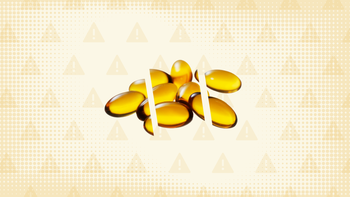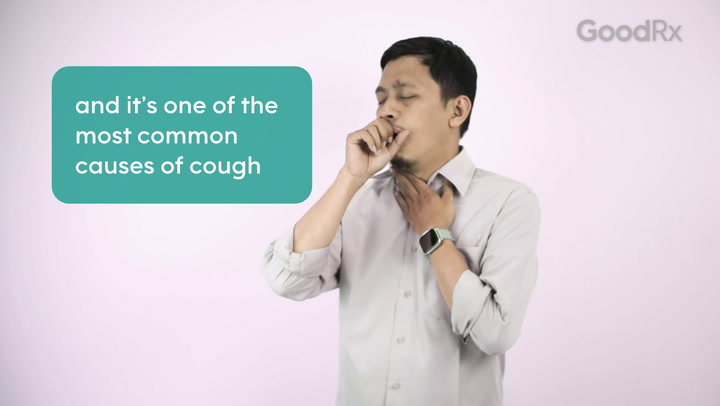
Does Honey Really Work to Soothe a Cough?
Key takeaways:
Studies show that a teaspoon of honey may be an effective remedy to help a cough.
The thick texture of honey may help reduce the urge to cough by coating and soothing the throat. Honey’s antimicrobial and anti-inflammatory properties may also play a role.
Honey is safe for most people except children under 1 year old. People who have diabetes may want to limit how much honey they have.
Table of contents

Ever have a cough that keeps you up at night? While you may not always need medication, having a remedy on hand that can keep your cough at bay can make all the difference. It turns out that honey — a household staple — may have some science-backed benefits after all.
Can honey help a cough?
Research suggests that honey may help alleviate a cough. And it may be even more effective than some cough medicines.
Before we dive into the research, it’s important to note that most of the research on honey and coughs has been done in children. This makes it harder to know how effective it is in adults.
Search and compare options
For example, one large review study found that honey helps with both cough frequency and intensity in children ages 1 through 18. And when the researchers compared honey to other treatment, they found that honey was:
Better than no treatment (or placebo)
Better than diphenhydramine
Similar in effect as dextromethorphan
Similar in effect as salbutamol
But keep in mind, depending on what’s causing your cough and the length and severity of your symptoms, you might need antibiotics to treat your cough. Talk with a healthcare professional if your cough lasts longer than 2 weeks.
How does honey work to help a cough?
There are a few ways honey may help treat coughs. It:
Contains antioxidants, which may help lower inflammation in your throat
Contains antibacterial properties that may help prevent infection
May decrease the amount of mucus the body produces
Has a thick texture, which may help with throat irritation that produces the urge to cough
How much honey should you take for a cough?
It’s unclear. Some studies on honey for coughs used around half a teaspoon (2.5 mL), and others closer to 2 tsp (10 mL). In most studies, participants took the honey before bed. If you have questions about how much honey is safe for you or your child to take for a cough, talk with your primary care provider or your child’s pediatrician.
Is it COVID or a cold? COVID-19 and the common cold can feel similar, but there are important differences in incubation, symptoms, and how long the illness lasts.
How to kick a persistent cough: There are several different causes of a stubborn cough, and the treatment will depend on the cause.
Is your cough serious? Although fighting off a cough takes time, most coughs eventually resolve on their own. But there are a few signs that suggest you should get checked out as soon as possible.
Honey can be taken on its own or mixed into warm water or tea. Some people like to add a squeeze of lemon for flavor.
What type of honey is best to take when you’re sick?
So far, there’s no clear evidence that one particular type of honey is better to use than others.
But try to look for honey that says “raw,” “unfiltered,” or “pure” on the label, since these types skip the filtration process that causes honey to lose nutrients.
Who should avoid honey?
Honey can be a more accessible and affordable way to soothe a cough than some cough medications. But while honey is safe for most people, some people need to avoid or limit it.
Babies
Babies younger than 1 year shouldn’t be given honey for a cough due to a risk of botulism, a rare but life-threatening disease. Honey can contain spores from Clostridium botulinum. Most adults are able to inactivate these spores in their gut. But babies don’t yet have a mature enough immune response to fight bacterial spores.
Type 2 diabetes
If you have Type 2 diabetes, you don’t necessarily need to avoid honey altogether. But you may want to limit the amount you eat.
Although honey has a lower glycemic index (GI) than table sugar, it still contains sugar. And any type of sugar raises blood glucose levels.
But the type of carbohydrates (fructose and glucose) in honey are easier for the body to digest than table sugar. And the balance of fructose and glucose in honey means that it has slightly less of an impact on raising blood glucose levels than table sugar.
Irritable bowel syndrome (IBS)
As mentioned above, honey contains fructose, which can trigger symptoms for some people with IBS.
In addition, many people with IBS are sensitive to a group of foods that contain fermentable oligo-di-monosaccharides and polyols (FODMAPS). And honey is high in FODMAPs.
In some people with IBS, FODMAPs are not fully absorbed in the small intestines. When these foods reach the large intestines, gut bacteria break them down and make excess water and gas. This can make IBS symptoms worse.
Frequently asked questions
There are several ways to manage and improve a cough quickly. Over-the-counter (OTC) medications can provide relief in most cases. The type of treatment you should choose depends on the type of cough you have. A wet cough may need an expectorant. A dry cough may need a cough suppressant.
There are also home remedies for a cough, including:
Honey
Humidifier
Steam treatment
Warm liquids
Some symptoms of the common cold, including coughing, actually do get worse at night. There are a few reasons why coughs get worse at night:
Lying down can worsen your cough. This happens because your congestion is more likely to drip down your throat and activate your cough reflex more frequently.
Lung airways narrow at night. So, many people experience some diminishment of lung function during these hours.
Bedroom allergens can trigger coughing. But there are ways to minimize indoor allergens if you think they may be the culprit.
If you have a cough that happens mainly at night and lasts longer than 2 weeks, it’s a good idea to reach out to a healthcare professional to see if other testing or treatment is necessary.
One of the reasons honey is a great home remedy for a cough is that it may help with mucus. Research suggests that honey can reduce mucus production.
The bottom line
A teaspoon of honey is an inexpensive home remedy to treat a nagging cough. Its thick texture helps coat the throat and limit irritation, which can help lower your urge to cough. Try it by the spoonful or in a cup of tea.
Babies under 1 year old should not eat honey. If you have Type 2 diabetes, you may choose to limit the amount of honey you eat. If you have questions about whether honey is a safe cough remedy for you, talk with a healthcare professional or dietitian.
Why trust our experts?



References
Abuelgasim, H., et al. (2021). Effectiveness of honey for symptomatic relief in upper respiratory tract infections: A systematic review and meta-analysis. The BMJ.
Bobiş, O., et al. (2018). Honey and diabetes: The importance of natural simple sugars in diet for preventing and treating different type of diabetes. Oxidative Medicine and Cellular Longevity.
Goldman, R. D. (2014). Honey for treatment of cough in children. Canadian Family Physician.
Mandal, M. D., et al. (2011). Honey: Its medicinal property and antibacterial activity. Asian Pacific Journal of Tropical Biomedicine.
Murgia, V., et al. (2020). Upper respiratory tract infection-associated acute cough and the urge to cough: New insights for clinical practice. Pediatric Allergy, Immunology, and Pulmonology.
Oduwole, O., et al. (2018). Honey for acute cough in children. Cochrane Database of Systematic Reviews.
ScienceDirect. (n.d.). Monosaccharide - an overview.

























